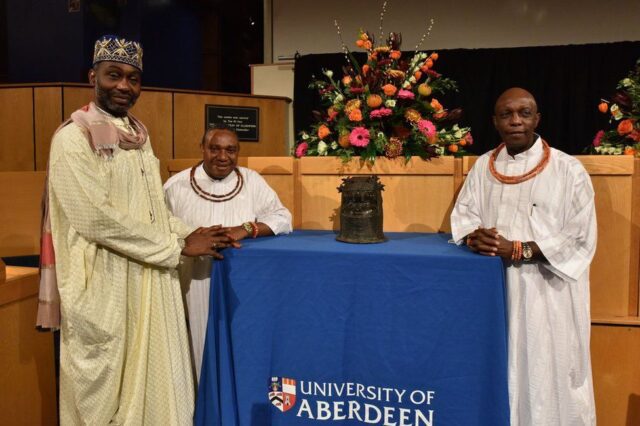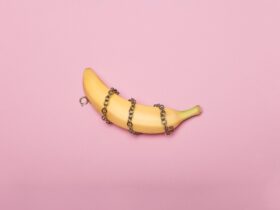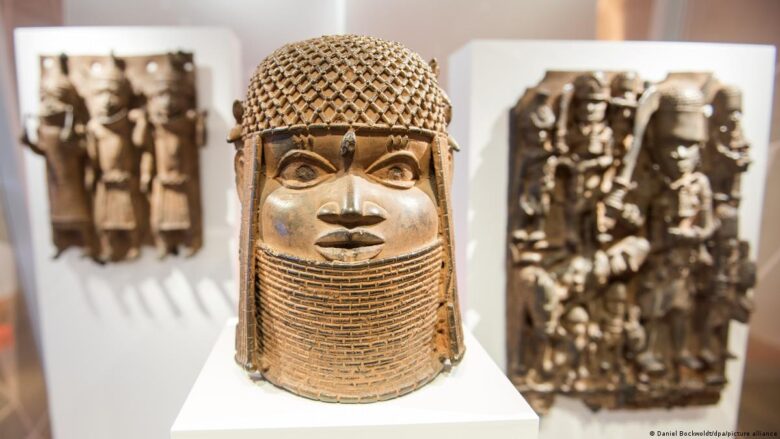Nigeria and other parts of West Africa are well-known for their creativity and expertise in crafting things out of bronze and brass. The collection of metal plaques and sculptures made of brass and bronze decorated the palaces of the ancient Benin Kingdom, which is now part of South Western Nigeria. Many pieces of these crafts were designated particularly for the altars of past Obas and Queen mothers. They were also used in several rites and rituals to respect the ancestors and to acknowledge the presence of a new Oba.
Some created artifacts include elaborately decorated cast plaques, commemorative heads, animal and human figures, items of royal regalia, and personal ornaments. They were created from at least the 16th century onwards in the West African Kingdom of Benin, by special guards working for the regal court of the Oba (king) in Benin.

In 1897, the Benin Massacre occurred when the British forces conquered and burnt the city of Benin under the leadership of Ovonramwem. The British stole over 1000 Benin Artefacts made of brass, bronze, and other valuable materials, and they were taken across several museums around their country.
What brought about the return of the stolen artefacts?
Over the past five years, there has been a growing rate to return the bronzes and other artefacts to their actual home, Nigeria. The requests and clamors became wide when Prince Emmanuel Macron of France said, “returning items of African heritage to the continent was a top priority”.
The German foreign minister Annalena Baerbock and the Commissioner for Culture and media, Claudia Roth signed a Memorandum of Understanding with their counterparts from Nigeria. Roth said, “The return of the Benin bronzes underpins our commitment to coming to terms with our colonial history. It should be the beginning of a new, different cultural cooperation”, in a statement released by the Prussian Cultural Heritage Foundation.
Abba Isa Tijani, the director of the Nigerian Museums and monument authority told Deutsche Welle, a German media organization that the agreement to be signed between the Nigerian and German government is the general declaration for the return of 1,130 Benin artifacts. With this pact, ownership has been passed on to Nigeria.
How the stolen artefacts are being returned
In February, France returned 26 bronzes to Nigeria, these bronzes were stolen by the French Colonial Forces from the former Dahomey kingdom, which is presently the south of modern-day Benin.
On July 1st, 2022. Germany returned two of the Benin bronzes with the anticipation that 100 more will be returned subsequently. Andreas Georgen, General Secretary, Ministry of Culture in Germany, said at a conference that in the future if Nigeria ever requests an item back, it will be returned to Nigeria instantly.
The Museums in the United Kingdom have also agreed to return the artefacts to their ancestral home. The Horniman Museums and garden in South London has a very large number of African artefacts. The Museum has agreed to transfer a collection of 72 items to the Nigerian government. This decision was made after Nigeria’s National Commission for Museums and Monuments directly asked for the artifacts to be returned earlier this year and following a consultation with residents members, artists, and school children in both Nigeria and the U.K.
Additionally, The University of Aberdeen in England has returned the bronze statue of the Oba (king) that was acquired in 1957 by the university to Nigeria.

The national president of the Society of Nigerian Artists, Mohammed Suleiman demanded that England use some of the money they made from displaying the stolen artifacts to build museums in Nigeria, if they thought that Nigeria could not preserve these artifacts. He added that the items weren’t looted but were stolen and it is a great crime. “You went somewhere, killed people and forcibly stole their property, and you call it loot. In fact, it is not booty, it is what we call a stolen artifact,” he said.
It is quite impressive to see how the request for the return of the artifacts turned out as it would improve the cultural appreciation and acceptance by Nigerians.
Also read: 10 Unique Burial Traditions Across The World














